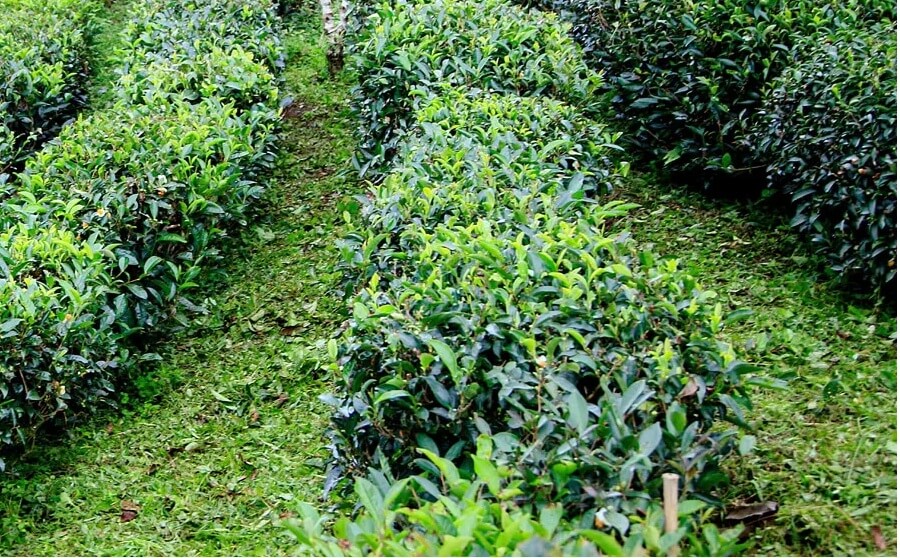
Organic Agriculture as a Tool for Rural Development in Sri Lanka
Organic agriculture, characterized by its reliance on natural processes and minimal use of synthetic inputs, has gained significant attention globally as a sustainable alternative to conventional farming. In Sri Lanka, where agriculture remains a cornerstone of rural livelihoods, the adoption of organic farming practices offers a promising avenue for rural development.
Agroecology is the Sri Lanka’s Preferred Organic Farming Method
Sri Lanka has a long-standing tradition of agriculture that dates back centuries, with farming playing a central role in its culture and economy. Recently, there has been a growing emphasis on transitioning from conventional agriculture to organic and sustainable farming methods. Among the most favored approaches in this transition is agroecology—an integrated approach that applies ecological principles to agricultural systems, promoting biodiversity, sustainability, and resilience. Agroecology is increasingly seen to address both the environmental and economic challenges faced by Sri Lankan farmers.
The Context of Rural Development in Sri Lanka
Sri Lanka’s rural areas are home to most of the population, where agriculture is a primary source of income. However, these regions face challenges such as poverty, lack of access to modern agricultural technologies, and environmental degradation. Conventional farming, heavily reliant on chemical inputs, has contributed to soil depletion, water pollution, and health issues among farming communities. In this context, organic agriculture emerges as a viable solution to address these challenges while fostering rural development.
Agroecology in rural areas is considered one of the most effective organic farming methods for several reasons. Unlike conventional agriculture, which often relies heavily on synthetic fertilizers, pesticides, and monoculture farming practices, agroecology emphasizes the natural interaction between crops, animals, and the environment. By fostering a diverse ecosystem, agroecology reduces the need for chemical inputs, improves soil health, and increases the resilience of crops to pests and climate changes. This approach is particularly suited to Sri Lanka, where many smallholder farmers depend on local ecosystems for their livelihoods.
The Role of Organic Agriculture in Driving Rural Development
1.Economic Benefits and Livelihood Enhancement
Organic farming offers significant economic benefits for rural communities. By reducing the dependency on expensive synthetic fertilizers and pesticides, organic agriculture lowers production costs, allowing farmers to retain a larger share of their income. Moreover, organic products often fetch premium prices in both local and international markets, providing farmers with higher returns on their produce. These increased earnings can improve the living standards of rural households, enabling them to invest in education, healthcare, and other essential services.

Most Famous Household Fruits in Sri Lanka © Renaissance Sri Lanka
The establishment of organic farming cooperatives further strengthens rural economies. By pooling resources and knowledge, farmers can increase their bargaining power, access better markets, and reduce the risks associated with individual farming. These cooperatives also create employment opportunities in rural areas, particularly for women and youth, contributing to poverty reduction and social empowerment.
2.Environmental Sustainability
One of the most compelling arguments for organic agriculture is its contribution to environmental sustainability. Organic farming practices, such as crop rotation, composting, and the use of organic fertilizers, enhance soil fertility and reduce the need for chemical inputs. This not only protects the environment but also ensures long-term agricultural productivity. Healthier soils lead to higher yields and more resilient crops, which are crucial for food security in rural areas.
Agroecological practices include crop rotation, the use of organic fertilizers (such as compost and animal manure), and the integration of trees, shrubs, and other plant species that promote soil fertility. These methods help to improve water retention in the soil, reduce erosion, and maintain the balance of nutrients, making farms more productive over the long term. Additionally, agroecology aligns with traditional farming knowledge in Sri Lanka, making it easier for local farmers to adopt these practices.

Rich soil with organic fertilizers © Renaissance Sri Lanka
Additionally, organic agriculture promotes biodiversity by encouraging the use of diverse crop varieties and natural pest control methods. This biodiversity helps maintain ecological balance and reduces the vulnerability of crops to pests and diseases. In the context of climate change, organic farming practices that build soil organic matter can also contribute to carbon sequestration, helping mitigate the impacts of global warming.
3.Improvement of Health and Well-being
The shift to organic agriculture has significant health benefits for rural communities. The reduced use of synthetic pesticides and fertilizers lowers the risk of exposure to harmful chemicals, which are associated with various health issues, including respiratory problems, skin conditions, and even cancer. Organic farming practices prioritize the health of both the farmer and the consumer, leading to the production of safer and more nutritious food.

Popular organic vegetables in Sri Lanka © Renaissance Sri Lanka
The consumption of organic food, which is free from chemical residues, has been linked to better health outcomes, including lower incidences of chronic diseases. In rural Sri Lanka, where access to healthcare facilities may be limited, the health benefits of organic farming can have a profound impact on community well-being. Furthermore, healthier communities are better positioned to contribute to local development efforts, creating a positive feedback loop of improved living standards and sustainable growth.

Heathier salad using organic vegetables and fruits © Renaissance Sri Lanka
4.Social and Cultural Benefits
Organic agriculture aligns with traditional farming practices that have been a part of Sri Lankan culture for centuries. By reviving these practices, organic farming fosters a sense of pride and ownership among rural communities. It also strengthens social cohesion as farmers work together to promote sustainable agricultural practices. The emphasis on community-based approaches, such as cooperatives and farmer groups, enhances social capital and collective action in rural areas.
Moreover, organic agriculture supports the preservation of indigenous knowledge and practices, which are often marginalized in conventional farming systems. This cultural preservation is important not only for maintaining biodiversity but also for fostering a sense of identity and continuity among rural populations. The integration of traditional knowledge with modern organic farming techniques can lead to innovative practices that further enhance rural development.
Challenges and Opportunities
While organic agriculture offers numerous benefits for rural development in Sri Lanka, it is not without challenges. Transitioning from conventional to organic farming requires significant changes in farming practices, which can be difficult for farmers who lack access to training and resources. The initial conversion period can also result in lower yields, which may discourage farmers from adopting organic methods.
To overcome these challenges, it is essential to provide support through government policies, extension services, and financial incentives. The Sri Lankan government has recognized the potential of organic agriculture and has taken steps to promote its adoption, such as the National Organic Agriculture Policy. However, more efforts are needed to ensure that these policies are effectively implemented at the grassroots level.
There are also significant opportunities for expanding organic agriculture in Sri Lanka. The growing global demand for organic products presents a lucrative market for Sri Lankan farmers. By positioning themselves as producers of high-quality organic goods, rural communities can tap into international markets and increase their income. Additionally, the promotion of agro-tourism, which combines organic farming with tourism, can create new revenue streams for rural areas.
Case Study: The Success of the Uva Province
The Uva Province in Sri Lanka provides a compelling example of how organic agriculture can drive rural development. In this region, a concerted effort has been made to transition from conventional to organic farming, particularly in the tea and vegetable sectors. The initiative has led to increased incomes for farmers, improved soil health, and enhanced community cohesion.

Organic tea plantation in Sri Lanka © Renaissance Sri Lanka
One notable success story is the establishment of organic tea gardens in the Badulla district. These gardens have not only produced high-quality organic tea that is in demand globally but have also created employment opportunities for local women, who play a crucial role in the cultivation and processing of the tea. The initiative has empowered women economically and socially, contributing to the overall development of the region.
Renaissance Sri Lanka’s Contribution to Agroecology
Renaissance Sri Lanka (RSL) plays a crucial role in promoting agroecology as part of its broader mission to foster sustainable development in Sri Lanka. The organization works to empower local communities, particularly in rural and underserved regions like the Badulla and Polonnaruwa districts through initiatives that blend traditional knowledge with modern sustainable practices.
One of RSL’s key contributions to agroecology is through education and training programs. By partnering with agricultural experts such as MONLAR and Greenfem, environmentalists, and local leaders, RSL helps farmers understand the principles of agroecology and how they can be applied to their farms (Read More). These training sessions cover practical aspects of organic farming, including soil management, pest control without chemicals, and biodiversity conservation (Read More) . The goal is to equip farmers with the tools and knowledge they need to transition to organic farming methods while maintaining productivity and profitability.
Additionally, RSL is focused on the empowerment of women in agriculture, recognizing their essential role in farming communities (Read More). Through capacity-building programs, RSL encourages women to adopt agroecological practices and create cooperatives where they can collectively produce and sell organic goods (Read More). By supporting women-led cooperatives, RSL fosters both economic independence and environmental sustainability.
Another significant way RSL contributes to agroecology is by helping small farmers access markets for organic products. One of the challenges organic farmers face is finding reliable buyers for their produce. RSL works to bridge this gap by connecting farmers with cooperatives and retailers who are committed to selling organic and sustainably grown products. This not only ensures that farmers are rewarded for their eco-friendly practices but also promotes organic products to consumers, helping to raise awareness about the benefits of agroecology.
Furthermore, RSL actively advocates for policy changes that support agroecological farming. By engaging with local authorities such as Women Development Center of Badulla, RSL pushes for more funding, subsidies, and infrastructure development that can help organic farmers thrive. For instance, the organization encourages policies that promote organic certification and provide farmers with the resources to transition from conventional to organic farming.
Conclusion
Organic agriculture holds significant potential as a tool for rural development in Sri Lanka. By enhancing livelihoods, promoting environmental sustainability, improving health outcomes, and fostering social cohesion, organic farming can drive sustainable community growth in rural areas. However, realizing this potential requires concerted efforts from all stakeholders, including the government, non-governmental organizations, and rural communities themselves. With the right support and investment, organic agriculture can become a cornerstone of rural development in Sri Lanka, leading to improved living standards and a more sustainable future.
References
- De Silva, T. L. G. (2020). Organic Agriculture and its Role in Sustainable Rural Development: The Case of Sri Lanka. Journal of Rural Studies, 34(2), 256-263.
- Fernando, A. A., & Weerasinghe, S. (2019). Economic Benefits of Organic Farming for Rural Communities in Sri Lanka. Journal of Agrarian Studies, 45(1), 75-89.
- Jayasinghe, U. K. (2021). The Impact of Organic Agriculture on Health and Well-being in Rural Sri Lanka. International Journal of Agricultural Sustainability, 18(4), 431-447.
- Ministry of Agriculture, Sri Lanka. (2022). National Organic Agriculture Policy. Retrieved from[https://www.agrimin.gov.lk/web/images/20.10.2022-1/Final%20English%20Document%2007.02.2022%20pdf.pdf].


